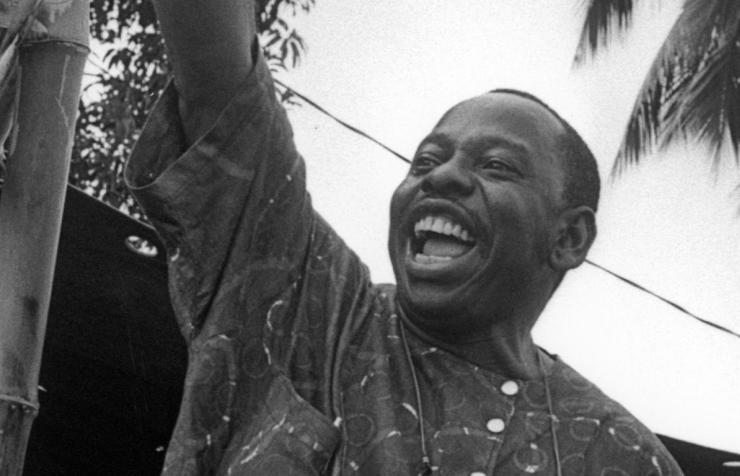Far more than just a plot of land.

On November 10, 1995, the Nigerian government executed nine activists from the Ogoni people, the majority of the population of the Niger Delta, for opposing the oil extraction of the Royal Dutch Shell on their land. Among them was Ken Saro-Wiwa, a well-known author and winner of the Goldman Environmental Prize.
According to Amnesty International, the executions were part of a plan by the Nigerian Armed Forces, with the complicity of the Anglo-Dutch company, to silence the protests of the Ogoni People’s Survival Movement, which is a movement for the survival of the Ogoni people who not only depend on natural resources for their livelihoods but also use ecosystems for cultural and spiritual purposes.
These killings sparked international protests against Shell and led several countries to temporarily suspend diplomatic relations with Nigeria. The United Nations Environment Programme documented the devastating effects of the oil spills in Ogoniland and made urgent recommendations for the cleanup of the land.
Despite this, almost 30 years after the killing of the environmentalists, thousands of people in the region continue to suffer from serious health problems due to contaminated food and water. Likewise, many Afro-descendant peoples in Latin America and the Caribbean have been denouncing for decades the invasion of their ancestral territories for the extraction of natural resources and acts of violence against community leaders who defend their right to a healthy environment.
Colombia is the country with the highest number of environmental defenders murdered, according to a list published by Global Witness. Between 2016 and 2024, the United Nations confirmed the killing of 248 activists who fought against mining and oil exploitation in the country, most of them indigenous and of African origin.
The search for wealth and political power led European nations to promote extractivism as a development model during colonial expansion. This legitimised the occupation of territories, the plundering of raw materials and the enslavement of populations in the Global South.
In today’s terms, this amounts to the extraction of materials used for digital transformation and energy transition and the production of models already used during centuries of colonial exploitation, land dispossession and subjugation of historically racialised communities.
This would not be possible without the support of governments that respond with the use of police and military force to the resistance of people who seek to protect their territories. There is a direct relationship between land and the survival of some populations that not only depend on natural resources for their sustenance, but also use ecosystems for cultural and spiritual purposes.
These populations must be consulted and taken into account before any operation is carried out in their environment. However, the persistent violation of human rights suffered by local populations reveals that the doctrines of racial superiority, according to which the lives of black and indigenous people must sustain the privileges of Western societies, remain deeply rooted.
Eradicating the global dynamics of racism and dehumanisation that advantage some groups at the expense of others is a collective task that requires profound changes in our social, economic and political structures. A sustainable world for all will be possible when our societies understand that peace is not only the absence of war, but intrinsically implies respect for the rights of people living in harmony with nature.
Isabelle Mamadou



